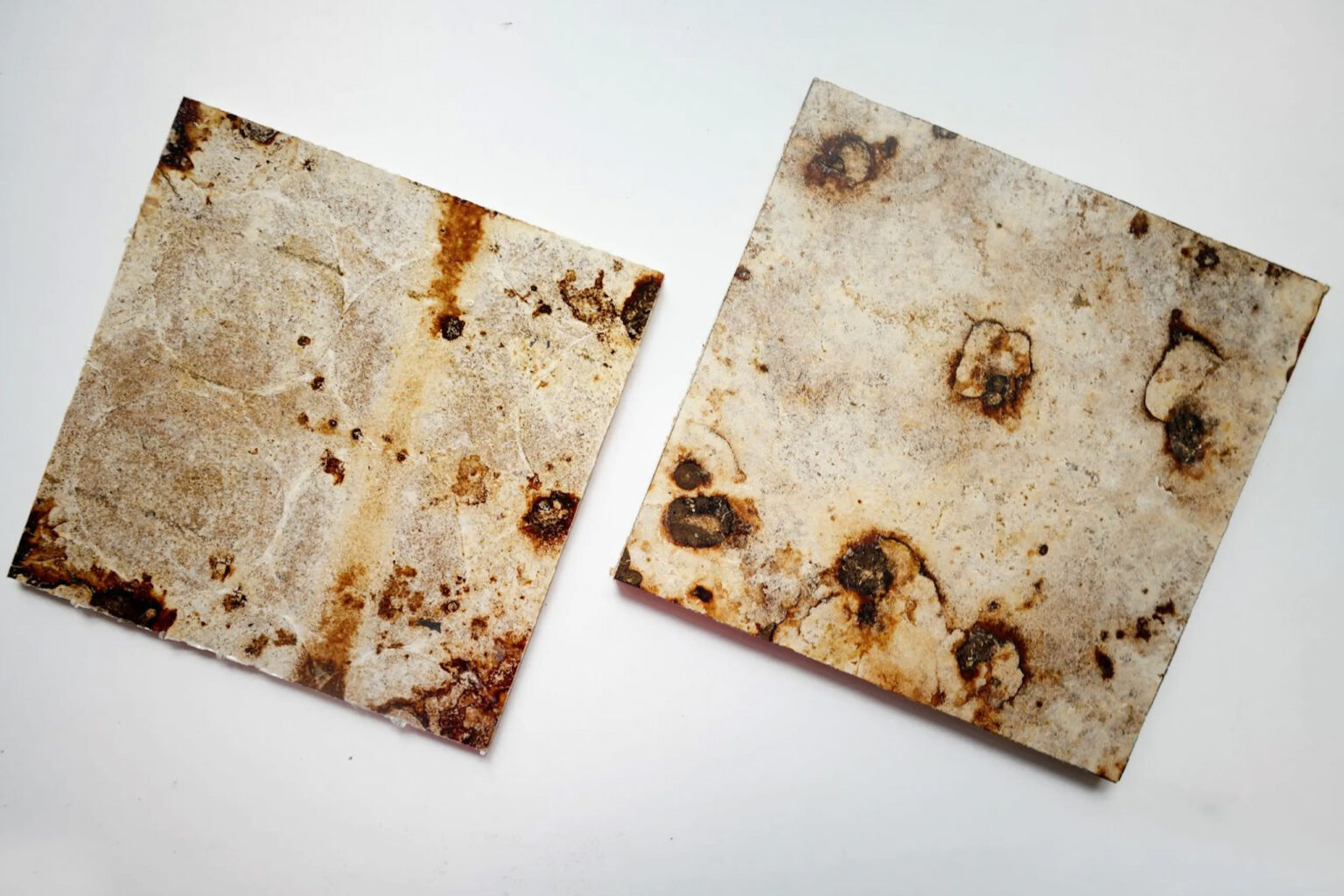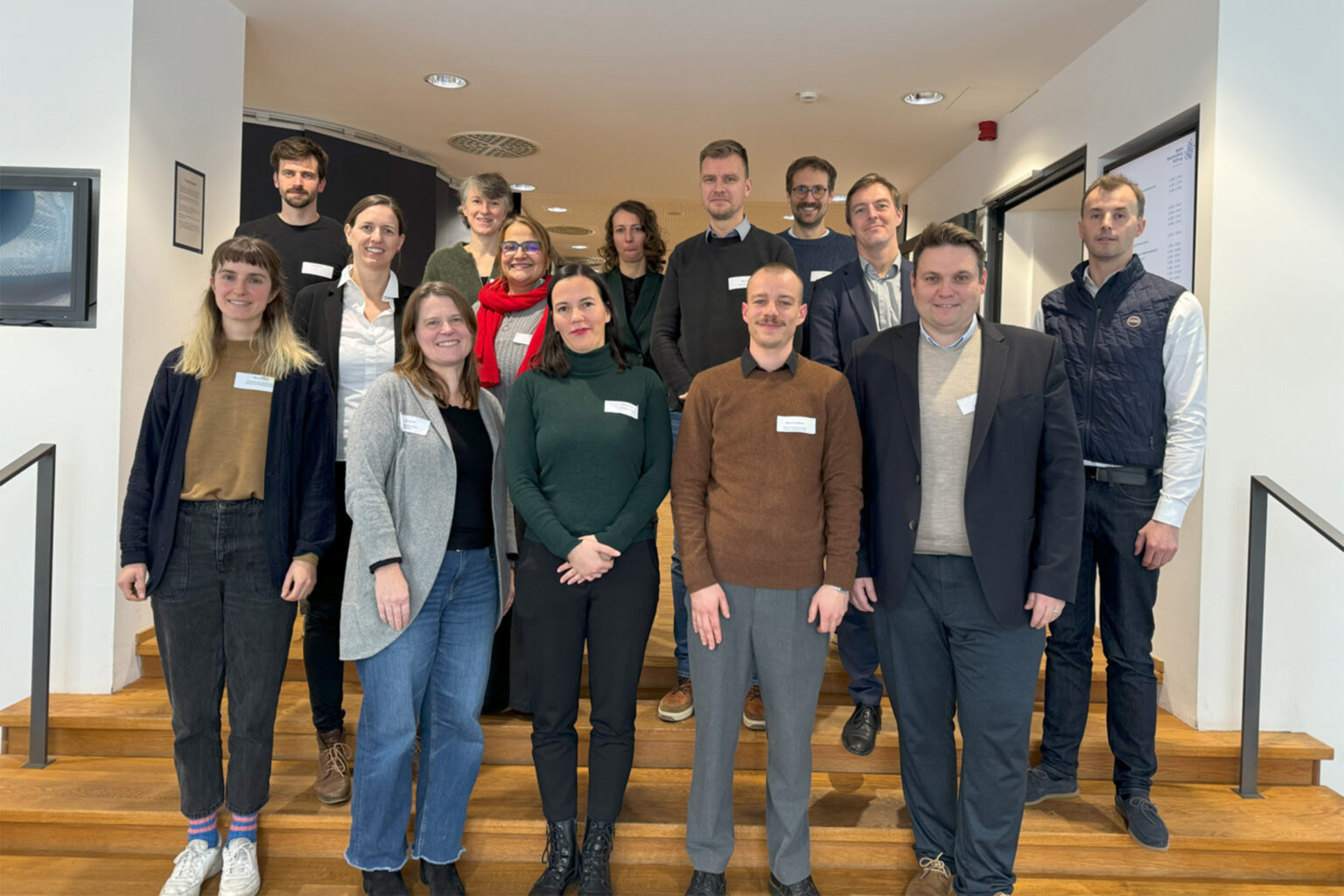Sustainable building
The construction and operation of buildings and the construction of infrastructure are responsible for around 40% of global greenhouse gas emissions. At the same time, cities consume over 75% of global resources and generate around half of the world's waste. Against this backdrop, alternative and sustainable materials and construction methods are becoming increasingly important in order to significantly reduce emissions from material-intensive industries and promote the circular economy.
The KIT Department of Architecture is conducting intensive research in this area and is very pleased that two projects will be funded in the next two years as part of the research program "Circular Building: Climate Protection through Circular Economy" research program funded by the Baden-Württemberg Stiftung gGmbH.
NEWood
A 100% bio-based, climate-friendly and recyclable material for the construction and furniture industry
The Karlsruhe Institute of Technology (KIT) is working under the direction of Prof. Rebekka Volk (IIP) in close cooperation with project manager Dr. Nazanin Saeidi from the research department of the Chair of Sustainable Building (IEB) on the development of the innovative material "NEWood". This material is a 100% bio-based and recyclable alternative to conventional pressed chipboard with great potential for the construction and furniture industry. NEWood is made exclusively from wood processing residues, agricultural waste and mushroom mycelium - completely without fossil raw materials. In the process, biogenic carbon is permanently bound, which makes an important contribution to climate protection.
The project aims to develop 1:1 demonstrators that illustrate the versatility of NEWood for interior wall systems and furniture components. These demonstrators should meet the legal standards of the construction and furniture industry to enable a market launch of the material. The project also includes a life cycle analysis, a cost analysis and a feasibility study for industrial production.
In addition to KIT, partners such as König + Neurath AG and Fiber Engineering are involved in the development.
With its ability to permanently bind biogenic carbon and replace fossil materials, this material can revolutionize the circular economy in the construction and furniture industry.
More information:
https://nb.ieb.kit.edu
ReSidual
Robotics and AI-based development of secondary material flows in the digital prefabrication of load-bearing wood-clay composite components
The ReSidual project at KIT uses digital construction technologies to use wood more efficiently in the construction industry. Scrap materials from timber component production are processed into load-bearing wood-clay composite components using AI and robot-assisted production methods. The combination with clay further reduces wood consumption.
In cooperation with the Chair of Digital Design and Production, the Chair of Timber Construction and Building Construction and the industrial partner GROPYIUS, AI-supported planning processes, robotic production techniques and the material composite of wood and clay are being researched. A 1:1 scale prototype of a wood-clay composite ceiling is planned, which will be statically tested and analyzed in terms of building acoustics.
The project demonstrates the potential of this recyclable and resource-saving construction method and represents a sustainable alternative to wood-concrete composite ceilings.
More information:
https://www.ddf-kit.de/
Both projects combine innovation and sustainability. At the same time, they make a significant contribution to reducing greenhouse gas emissions and protecting the climate.
At the program's kick-off meeting at the Baden-Württemberg Stiftung on 21 November 2024, participants were given an insight into the various funded projects. Among them: Prof. Rebekka Volk and Nazanin Saeidi (NewWood) and Daniel Fischer (ReSidual).


